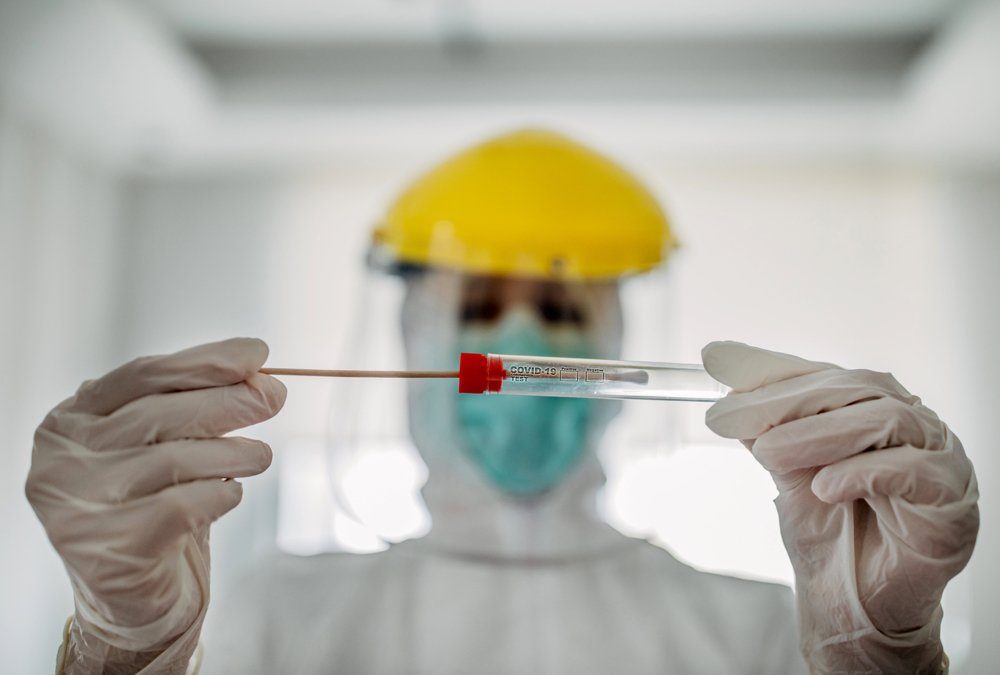Testing delays prevent TFWs from getting to work

The road to getting Temporary Foreign Workers from their flight to the field is fraught with COVID-19 challenges this season.
Workers arriving at Pearson International Airport are offered a COVID-19 vaccine and receive the first of a two-step remote COVID-19 swab test.
Why it matters: Producers depend on temporary foreign workers to plant and harvest crops at precise times. Delays can affect food supply.
Switch Health is responsible for managing the initial tests administered to all travellers arriving in Canada within the first 24 hours and a second test seven days later.
The second test is mandatory to release TFWs in quarantine, however, challenges in accessing an online Switch Health nurse, or inaccurate test results and lost tests threaten to extend the time frames.
“We’ve got our life on the line here, our financial life on the line of our families, and we’re relying on a lab test that cannot be done consistently,” said Ken Forth, president of Foreign Agricultural Resources Management Service.
“I don’t know if you understand what kind of stress that is. But it’s huge.”
Given the actions taken by the agriculture sector to streamline the process, Forth says he is frustrated.
Forth said they hired qualified nurses to ensure accuracy when administering the Day 10 and Day 9 tests, but the wait to reach a Switch Health nurse is between 12 and 14 hours, causing a great deal of stress for the TFWs and farmers.
Several farmers are taking the extra step of delivering the tests directly to the Switch Health laboratory dropbox to expedite the process and still encounter a four to six-day delay, inaccurate results or lost tests.
“I’ve had situations where people are in quarantine for a lot longer than 14 days, some 20, some 30 days in quarantine because the test hasn’t come back,” said Forth. “The bottom line is these are people’s lives, whether it be the workers or the farm community.”
Forth’s own experience of the company’s inability to track or perform tests on time has raised questions about the accuracy of the results. Four hand-delivered tests required somebody to chase down the results days later because Switch Health didn’t regularly empty the dropbox, Forth said.
Three of the tests came back negative, but the fourth came back positive after five days. Forth immediately isolated the worker and contacted his local health unit. The health unit said to bring all four workers for a retest because the results didn’t add up.
They all tested negative, leading Forth to question the accuracy of the results from a days-old test that relies on moisture.
“It doesn’t work, but we’re the ones that pay for it at the end of the day. Let’s get professional here,” said Forth. “We’ve taken the amateur out of the front-end by hiring nurses to actually do this. It should be first-in, first-out, not willy-nilly whenever the heck they feel like doing it.”
Several regions have run vaccine clinics specifically targeting early-arrival TFWs to ensure they have access to vaccines after their initial quarantine.
The Haldimand-Norfolk County region, where TFWs undergo some of the strictest quarantine protocols in the province, ran three clinics and administered about 600 vaccines to TFWs by mid-April, ensuring 80 per cent of the workforce covering 20 farms and agricultural operations had their first dose.
On April 10, the Ontario Ministry of Agriculture, Food and Rural Affairs (OMAFRA), the Ministry of Health and the Ontario Fruit and Vegetable Growers Association (OFVGA) launched a TFW-focused vaccine pilot project at Pearson International Airport.
As of late April, 14 charter flights of TFWs have been offered vaccines.
“A little more than a year ago we were in a position where we didn’t know whether we were going be able to bring in workers. We had so little awareness of what was to come,” said Gordon Stock, OFVGA senior policy and government relation adviser. “And now to be at the airport vaccinating workers on their way in — it’s just a big deal. It’s no small feat.”
Forth commends the airport vaccine program but wishes there was a greater focus on getting source countries on board with encouraging voluntary uptake.
In the Caribbean, the bad press for the AstraZeneca vaccine has created fear and hesitancy, which reflects in worker uptake at the airport.
Forth and Stock attribute the Mexicans’ willingness to be vaccinated, in large part, to the pro-vaccine messaging of their government.
The program provides language-specific vaccine information packages to workers pre-flight from employers when possible and upon arrival to help address concerns and increase uptake.
Stock said while they work to address vaccination hesitancy in low-uptake cultures, they must be sensitive to individual choice because the vaccine is voluntary.
“The ability to get workers vaccinated early is a positive step that could potentially reduce COVID-related risks on the farm,” said Stock. “The risk will never be zero, so we have to continue to be vigilant with our on-farm protocols and safety concerning COVID.”

